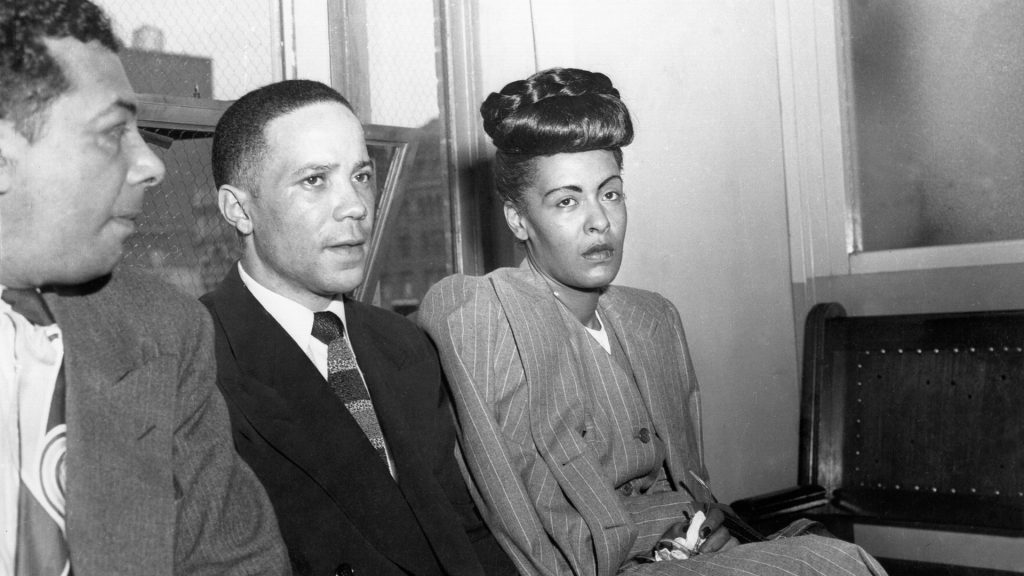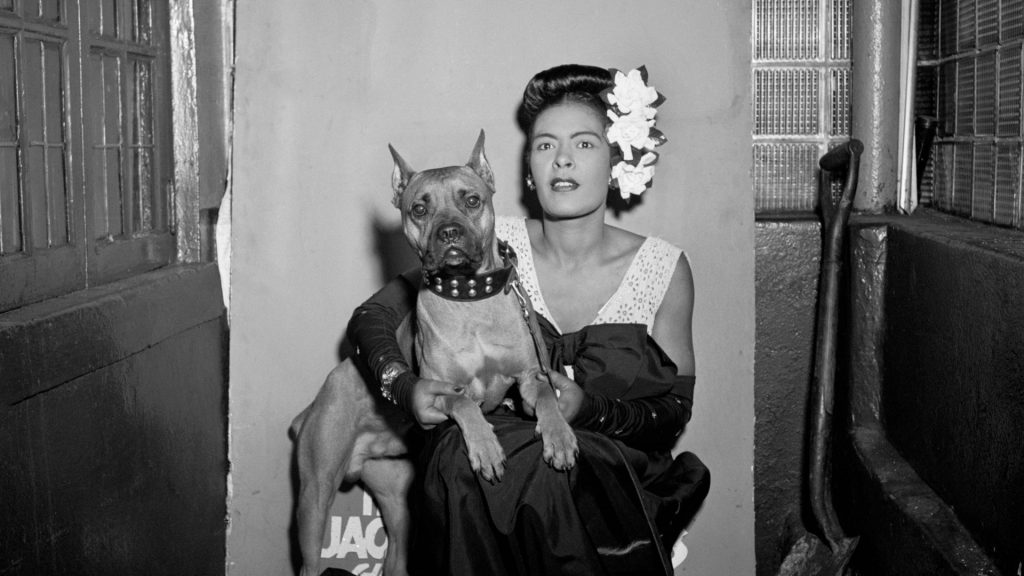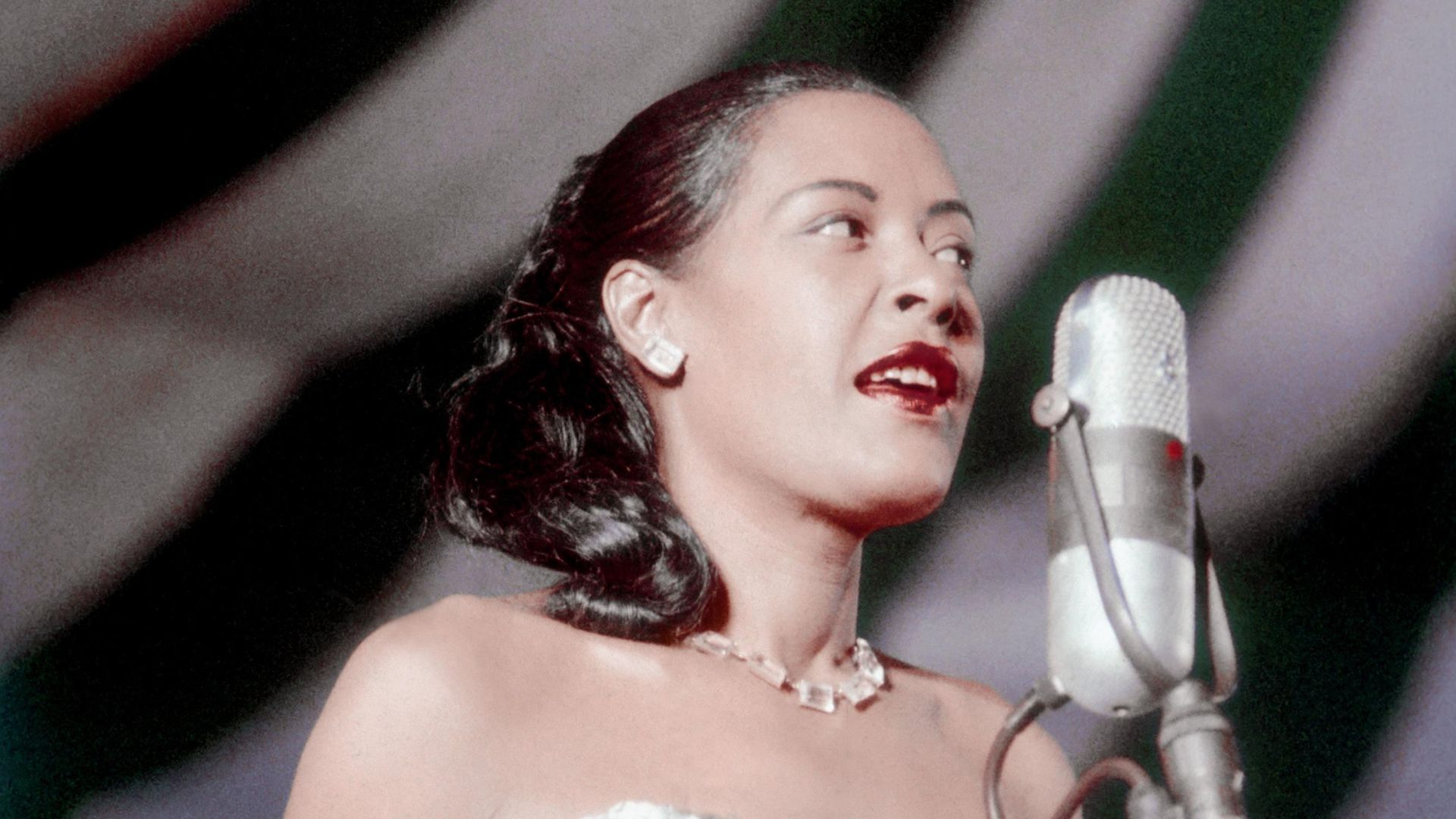There are a few artists who we choose to journey to Calvary with us.
One of them is an African American woman born Eleanora Fagan, who changed her name to Billie Holiday. That she would have probably rather been remembered as the great jazz innovator that she was, and a woman who could take herself on her best day, is neither here nor there in light of The Legend.
She is, to most, a martyr, and a victim. That status will only be amplified by the new film The United States vs. Billie Holiday, which focuses on her persecution, and for which Andra Day has been nominated for a Best Actress Oscar.

The great instrument born inside of Billie Holiday, which she defended and honed to perfection, is secondary to requirements. Most of us have heard it somewhere, somehow, or at the very least we have heard women who have made an attempt at it.
First, most of them try to sound like her, or what they believe that she sounds like and sometimes this is accomplished.
And there is the gardenia and the laid-backness of Billie, and, finally, the image is complete. The Calvary part, the Way Of The Cross, comes in later, when we grow up a bit and experience life and have the kind of sad knowing that listening to Billie can assist.
My late dad collected jazz records, his solace after a hard night at the factory making tin cans and suffering the racist abuse of his co-workers. Billie, I can imagine, took him back to the days before I was born, before he got married, before he had to settle down.
Those were the days in the US Army, the Third Army led by Patton, and Billie Holiday’s voice was out there on the field, too. She had an edge and did not have the reassuring beauty and shimmer of tone of Ella Fitzgerald and Lena Horne, two other Black GI musical icons.
“She was competitive”, my friend Hartwig Fischer, director of the British Museum once pointed out to me. Sometimes you have to listen to her with a friend and then her world opens up. His observation took me away from the pathos, the squalid tragedy and the oppression of her life. Billie may seem like a solitary journey. But she is collective. She yearned for audiences. She is a shared adventure. Not melancholy. Not tragic.
I found my first Billie Holliday in my dad’s collection, sitting with him listening. The record was called What A Little Moonlight Can Do. The song had been a hit, like almost all of her work had been, and the cut was a bouncy, jolly thing for a little girl to sing.
I had no idea what I was singing, and I was probably pretty scandalous, but at least I did not have her nailed to a cross. That came later.
When, in a sense, the culture made their own Golgotha for her.
For my father, a former GI fighting in the segregated US Army during World War Two, she expressed an inner adventure, a big longing that came from going beyond ethnicity; beyond nationality and gender and place. Her longing was about trying to reach out and touch the thing that you wanted to be. She was not here to die for our sins.
Billie wanted to be the finest, clearest, most complex musical instrument out there and to make the money her genius was due, and to be respected. I did not say that she wanted to be an instrument “of”, but an instrument itself.

She aimed to be a part of the band like the trumpet or the drums or the sax. Her human voice was an instrument in that general attempt that all jazz musicians aim for: the transcendence of their own sound. To get clear past your own iteration. Get past it to the place where you did not need it anymore and could set it aside and finally turn and face “The Strange”, as David Bowie once sang.
Billie was heading for that, and maybe drugs and a true love and a “good, clean , well-lighted place”, as Hemingway once wrote. But Lady Day played to the crowd on their road to the Big Hill and she had to be crucified there in the end.
Most of us have no idea about the inner life of a great artist. All that most of us can do is project and hope that in this projection there is a small doorway inside, a tunnel.
Billie Holiday allowed this.
She knew that the people who came to see her at that epic Carnegie Hall concert in 1948, after she could no longer play the clubs because she had had her licence taken away because of substance abuse, came to walk to Calvary.
She knew, too, that she had to accept at that concert the gardenias given to her by a stranger. That she had to pin them to her hair, even when the pin pierced her skin and she stood there singing with trickles of blood running down her face, even through all of that she knew.
Her audience loved her and allowed her because she allowed them to take that trip to the cross.
The part of her that was African American is the least interesting to me because, after all, she suffered the same fate as all African American musicians of the time. Billie was no more enlightened, too, about all this than Charlie Parker was or Miles Davis or Sarah Vaughn or Louis Armstrong.
She knew the times she lived in, just like they did, and like them, she made music. She pursued her art in racist, segregated times when African American musicians had to have their own hotels; where travelling by the usual bus and car risked your life. You had to have your own. Everybody dealt with the racism but above all, any musician or promoter with ears to hear knew that Billie was something else; something new. This was what was most important.
And yet. We put her on that Way Of The Cross.
Maybe it was because she was busted in her hospital room before she died. Or maybe it was all the abusive male lovers; or her, at the time, taboo love for women; or that she was an addict, a pretty-lowdown junkie who would go anywhere for it; or that she died, her looks and her voice gone; lying in a hospital bed dealing with the New York City Police’s Narcotics Squad come to bust her.
My guess is that Billie Holiday would not have given a damn about our pity, nor our romanticism; nor our politicisation of her.
She did what she did because she wanted to. She always did what she wanted to.
When she busted in on her wastrel mother, asking for a bit of the money that her mother was making off the café that Billie had set up for her and her mother threw her out, Billie wrote God Bless The Child.
This was not out of sorrow, but sarcasm.
She had hurled the phrase at her mother as she left: “God bless that child that’s got his own!” she sneered, and we mourn and weep when we hear it because it is part of our trip with the genius with the crown of thorns on her head.

“She was competitive,” my friend pointed out, and to see her this way is to understand how she stood up in front of those male jazz greats and took them to HER space.
In the 1947 film New Orleans, a turgid B-movie featuring Billie as a maid and Louis Armstrong as her friend and eventual husband, she is seen on a bandstand with the immortal Satchmo.
He knows who she is and what she is doing, and he plays behind her beat, a master giving way to a greater.
Billie is wearing what could be taken as a rather gently cut man’s suit and a hat tipped to the side and she does not give a damn.
She is heading in the other direction, not off to be crucified.
She hears the great musicians behind her, and the genius playing beside her. And she transcends them.
Billie Holiday does not need our pity nor our sorrow.
For she is our insouciance.












